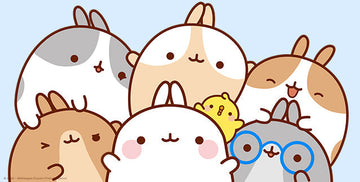Naming a baby is an important tradition in every culture, but the rules and customs around it vary widely across the world. These differences show how societies value names and what they believe a name should represent for a child’s identity and future.
Understanding these naming rules helps reveal the cultural beliefs and legal boundaries that shape how babies receive their names. Exploring these traditions provides insight into the diversity of human cultures and the ways names carry meaning beyond just identification.
1) Bali: Babies named according to birth order with names like Wayan and Putu for firstborns
In Bali, babies are given names based on the order they are born. This tradition applies to both boys and girls. The firstborn child often receives names like Wayan, Putu, or Gede.
The second child is named Made or Kadek. The third child is called Nyoman or Komang. The fourth child receives the name Ketut.
These names are not personal in the usual sense. Instead, they show the child's place in the family. This system helps people identify someone’s birth order just by their name.
This naming custom is common across the island and helps maintain cultural identity. It reflects the importance of family and order in Balinese society.
For more details, see the explanation about Balinese names and birth order.

2) Germany: Names must clearly indicate gender and be approved by local authorities
In Germany, the first name of a child must clearly show whether the baby is a boy or a girl. This rule helps avoid confusion about the child’s gender. Names that do not make the gender obvious are often rejected.
Local authorities review the chosen names. Parents must get approval to ensure the name follows the rules. Names that could harm the child’s well-being or cause ridicule are not allowed.
German law also bans some types of names. For example, city or country names and brand names cannot be used as first names. Additionally, a last name cannot be used as a first name.
Parents have some freedom, but the name must fit cultural and legal standards. This system aims to protect children and keep names clear and respectful. More details about Germany’s naming rules can be found in the article about baby naming laws in Germany.
Wrap your little one in charm with our soft and stylish Pink Romper collection. Perfect for playtime or picture day!
3) Greece: Babies traditionally named on the 7th or 10th day after birth following rigid conventions
In Greece, babies are usually named on the seventh or tenth day after they are born. This tradition is important and marks a special moment for the family.
The naming rules are strict. The first son is often named after his paternal grandfather, while the first daughter usually takes her maternal grandmother’s name. This keeps family names strong across generations.
Sometimes, parents combine the names of grandparents to create a unique name for the child. This practice shows respect for both sides of the family.
The practice is tied to both family honor and religious customs. Naming is not just about choosing a name but also about connecting the baby with their heritage and ancestors.
These rules make naming a thoughtful process, unlike in some cultures where names are chosen freely at any time. Greek families follow these traditions to keep family history alive.
More details on this tradition can be found in Greek naming tradition: how do babies take their names?
4) Iceland: Use of patronymic or matronymic surnames based on parents' first names
In Iceland, last names are not inherited as family names like in many other countries. Instead, children get a surname that shows who their parent is. This is called a patronymic or matronymic system.
Most often, a child's last name comes from the father’s first name with "son" added for boys or "dóttir" added for girls. For example, if a father is named Jón, his son’s surname would be Jónsson, and his daughter’s would be Jónsdóttir.
Less commonly, the surname may come from the mother’s first name. This helps keep the parent’s identity clear in the child’s name. Brothers and sisters can have different last names depending on this rule.
This system means Icelanders usually do not share a common family surname. It reflects a tradition that links people directly to their parents instead of a shared family name across generations.
More details on this tradition can be found in the article about the Icelandic naming system.
5) Japan: Some regions practice baby naming linked to auspicious kanji characters
In Japan, naming a baby often involves choosing kanji characters with positive meanings. Parents select characters that reflect hopes for their child’s future, like luck, health, or happiness. For example, the kanji 幸 (sachi) means "luck" and is popular in girls’ names.
Different regions may have unique preferences for certain kanji. The government has set rules limiting which kanji can be used to avoid confusion. Only officially recognized kanji with approved readings are allowed, making it harder to choose unusual or flashy names.
Some officials can reject names they believe could harm the child’s future. This is part of a broader attempt to standardize naming and protect children from names that might cause social or practical problems.
Parents may also use fortune-telling based on stroke count when picking kanji. This practice aims to bring good fortune and balance into the child’s life.
For more details, see Japan’s rules on flashy baby names and kanji readings.

6) France: Names must not harm child's well-being and are scrutinized by civil authorities
In France, the chosen name for a baby must not harm the child’s well-being. This rule means the name should not be embarrassing, offensive, or harmful to the child’s future life.
Since 1993, there is no official list of approved names. However, civil authorities carefully review names to make sure they meet this rule. If a name is considered harmful, a judge can be asked to decide if it should be changed.
Names that are objects, products, or last names are usually not allowed. The goal is to protect the child’s interest and avoid potential problems.
This careful naming process in France comes from traditions and laws dating back to Napoleon Bonaparte, who set rules for baby names in 1803. Today, French law focuses on the child’s best interest and well-being above all.
More details about these rules and their history can be found at the Local article on naming rules in France.
Bloom with beauty in every outfit from our Floral Baby Girl collection. Sweet prints and soft fabrics for your little flower.
7) Sweden: Unusual names can be rejected for being inappropriate or confusing
In Sweden, a government agency must approve baby names before they can be registered. The law aims to protect children from names that might cause offense or discomfort.
Names that are too strange, hard to pronounce, or might confuse others are often rejected. For example, names that sound like titles or surnames usually cannot be used as first names.
The law also requires that names clearly indicate the child’s gender. This means unisex names or names that do not fit traditional gender norms can be denied.
Parents must submit their chosen names, and the agency reviews each case carefully. If a name fails the criteria, parents have to pick another one.
This system ensures names are appropriate, protect the child’s wellbeing, and maintain social order. It reflects Sweden’s focus on balancing personal choice with clear naming rules.
More detailed information about these rules can be found on the Naming law in Sweden - Wikipedia page.
8) USA: Parents have relatively free choice with minimal restrictions on baby names
In the United States, parents generally have wide freedom in choosing baby names. Most states allow any name as long as it is not offensive or includes numbers or symbols.
Some states limit the length of a name or forbid obscenities. However, these rules are usually simple and focused on keeping records clear.
Compared to other countries, the U.S. has fewer naming restrictions. For example, many European countries require government approval, and some ban names that do not clearly identify gender.
Parents in the U.S. can also use unusual names, spell them differently, or create new names without needing permission. This freedom allows for great creativity in naming babies.
Still, certain names may be rejected if they cause issues with official documents. For more details about these rules, see the article on illegal baby names in the US.
9) Norway: Names must be approved and cannot cause offense or be too similar to existing names
In Norway, all baby names must follow strict rules set by the Names Act. The government reviews names to make sure they do not cause offense or harm to the child.
Names that sound too similar to existing names may also be rejected. This rule helps avoid confusion in society and protects the child’s identity.
Swear words, titles like King or Princess, and names related to diseases or medicines are not allowed. The goal is to prevent names that might embarrass or tease the child.
Parents must submit the chosen name for approval before it becomes official. If the name is denied, they need to select another one.
These rules aim to balance personal choice with social responsibility. For more details, see the regulations on banned names in Norway and the Norwegian Names Act regulations.

10) Mexico: Hybrid names combining Spanish and indigenous elements are common but regulated
In Mexico, baby names often combine Spanish and indigenous elements. This reflects the country’s mixed cultural heritage. Parents may blend names from both traditions to honor their roots.
Mexican naming customs follow a clear pattern: a personal name followed by the father’s paternal surname and then the mother’s paternal surname. This helps preserve family history across generations. However, there are legal rules about what names are allowed.
Names that might offend Indigenous communities or are seen as inappropriate can be rejected by authorities. The government aims to protect cultural respect while allowing some creativity. This balance keeps names meaningful and respectful.
For more on naming customs and rules in Mexico, see Mexican naming customs and regulations.
Keep tiny heads warm and adorable with our Baby Beanie Hat collection. A perfect finishing touch to any outfit.
Cultural Influences on Baby Naming
Names often reflect deep cultural values. They may show connections to faith or tie the baby to family history. These influences shape naming choices around the world.
Religion and Spiritual Significance
In many cultures, religion plays a central role in naming babies. For example, children may be named after saints or religious leaders. This can mean the child will celebrate a “name day,” a special occasion linked to the saint’s feast day.
Religious names often aim to confer blessings or protection. In Muslim communities, names might include attributes of God or important figures from Islamic history. In Hindu culture, names are often chosen based on astrology or sacred texts.
Parents may believe a name carries spiritual power. Choosing a name connected to religion is a way to pass on faith and values to the child.
Family Traditions and Lineage
Family ties strongly influence baby names in many parts of the world. Some cultures name children after grandparents or ancestors to honor heritage.
In places like Iceland, last names reflect the father’s or mother’s first name with added suffixes such as "-son" or "-dóttir". This links the child clearly to their family line.
Families may also follow strict naming rules. For instance, some traditions limit names to those used in the family for generations. This practice keeps family history alive and ensures names carry meaning beyond the individual.
Legal Guidelines and Global Variations
Naming babies is controlled by laws and customs that vary widely around the world. Some countries limit which names parents can choose to avoid confusion or offense. Others update rules regularly to reflect cultural changes or protect children's rights.
Government Regulations and Restrictions
Many countries have legal rules about baby names to prevent issues like offensive meanings or difficult spellings. For example, some places ban names that are traditionally last names if used as first names. Others do not allow symbols, numbers, or overly long names.
In countries like Germany, names must clearly show the child's gender. In Iceland, there is a list of approved names parents must choose from unless they get special permission. Some nations even stop parents from giving children names that could lead to bullying or embarrassment.
Rules may also require names to fit grammar and pronunciation norms. These regulations aim to protect children and keep official records straightforward. More details about naming laws in different countries can be found in articles about baby naming laws worldwide.
Recent Changes in Naming Laws Worldwide
Countries frequently adjust naming laws to balance tradition and modern values. For example, some places have relaxed old rules, allowing more creative or diverse names. Others have added protections to prevent harmful or offensive names.
In Japan, for example, the government updates the list of characters allowed for names, reflecting language and cultural changes. Meanwhile, New Zealand has banned names considered too unusual, such as symbols or confusing terms.
These changes often come after public debate or court cases, showing how naming laws respond to social trends. Continuous updates ensure names remain respectful while allowing personal choice. A good overview of changes is available from resources discussing global baby naming rules.
Where Tradition Meets Tiny Trends
Baby naming traditions reveal the beauty and diversity of cultures around the world—each name carrying a story, a legacy, or a heartfelt wish. Just as names are thoughtfully chosen, so too are the clothes that wrap our little ones in comfort and personality.
Celebrate your baby’s unique identity with adorable, high-quality outfits from our curated collections. Whether it’s the sweet charm of our Pink Romper , the cozy fits in our Baby Rompers , or the blooming beauty of our Floral Baby Girl line—each piece is designed with love. For classic cuteness, explore the Baby Boy Bubble , or top off any outfit with a cozy Baby Beanie Hat . Don’t miss the timeless elegance of our Smocked Girl Bubble collection.
Because just like a name, what they wear can say so much about who they are becoming.





